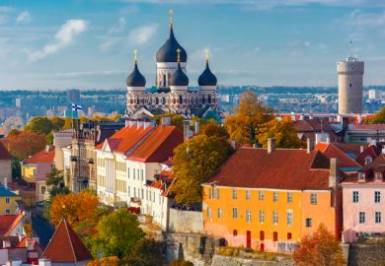Study in Bulgaria
 Posted date: 16 Dec 2021
Posted date: 16 Dec 2021
Bulgaria, a small but lovely Balkan Peninsula country, has much to offer international students and tourists. If you want to study in Bulgaria, you'll find a diverse range of natural environments, from warm, sandy beaches to dramatic mountains and ski resorts – and it's also a reasonably priced international study destination. Bulgaria is one of Europe's most ancient nations. Its rich history has left many historical sites as well as numerous stories and perspectives to be discovered. It was a one-party communist state from 1946 to 1989, but has since been governed as a democratic republic. It joined the European Union in 2007, making travel to and within the country even easier.
The majority of international students in Bulgaria come from neighboring countries, drawn by the country's well-developed higher education system, internationally recognized degrees, highly affordable tuition and living costs, and safe and friendly living environment. Bulgarian universities are well-known in many scientific fields, including medicine, mathematics, technology, chemistry, biology, linguistics, and so on. Dual degree programmes in English, French, or German are available at some Bulgarian universities. Although the quality of education at Bulgarian universities is very high, the admission requirements are slightly less stringent. Students who choose to complete their medical degree in Bulgaria have the opportunity to do internships and work in the EU and many other countries.
International students are drawn to a good high education level, a degree that is recognized throughout the world, a large game of study opportunity with very low tuition fees and living costs, a safe and friendly living environment, and so on. Bulgarian higher education adheres to the Bologna process, which ensures compatibility with qualifications offered by European universities. This means that higher education follows the standard progression of bachelor's, master's, and doctorate degrees. Undergraduate degrees take four years to complete, while master's programmes take one to two years to complete, or five years if you start right after high school.
Posted By

GSP Admin




